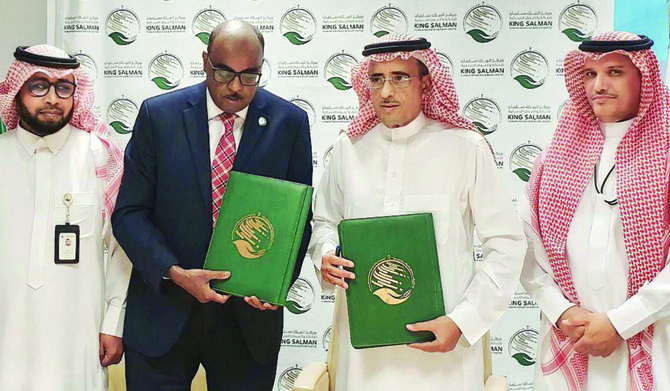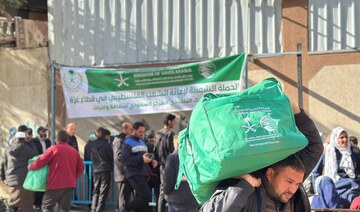RIYADH: The Al-Qahar Mountains, located in the Al-Raith Governorate in the northeastern part of Jazan, are a stunning testament to nature’s beauty, the area’s rich history, and the allure of adventure.
The mountains are among the Kingdom’s most prominent natural landmarks, rising over 2,000 meters above sea level, the Saudi Press Agency reported.
They are part of the Sarawat range, which stretches along the western coast of the Arabian Peninsula.
The Al-Qahar Mountains, a distinguished destination for nature and adventure enthusiasts, are characterized by their unique terrain, including high rocky peaks and deep valleys such as Wadi Lajab. The latter offers a panoramic scene in which vertical rock formations meet flowing water, creating a breathtaking spectacle.
The Jazan region is adorned with seasonal vegetation, including juniper and acacia trees, which enhance its exceptional beauty, particularly during the rainy season, the SPA added.
Al-Qahar Mountains also host ancient rock carvings that reflect the civilizations that once inhabited the area. Studies suggest that the mountains served as a significant trade route for caravans in the past, underscoring their economic and social importance.
The name Al-Qahar, which means dominance, is attributed to the rugged nature of the terrain, which has inspired local residents to create stories and legends passed down through generations.
The authorities in Jazan have implemented comprehensive development and service projects in the Al-Raith Governorate, providing promising investment opportunities in the tourism sector to harness the area’s natural and historic assets.
This development is not limited to Al-Raith but extends to all governorates in the region to support and enhance the infrastructure of the tourism industry.
The tourist attractions of Al-Qahar Mountains captivate both local residents and visitors throughout the year.
According to Ahmad Al-Wabrani, these main attractions include Wadi Lajab, hanging gardens, and massive caves that appeal to adventure and camping enthusiasts.
Faisal Al-Raithi has highlighted the strong bond between locals and the Al-Qahar Mountains, praising the efforts of the Heritage Commission in documenting rock carvings and developing the area.
Al-Qahar Mountains stand amid untouched nature, offering a vibrant natural landscape and serving as a testament to the region’s history and culture.
Visitors can enjoy the region’s natural splendor and embark on unforgettable adventures in a serene atmosphere boasting awe-inspiring views that captivate the heart.



























